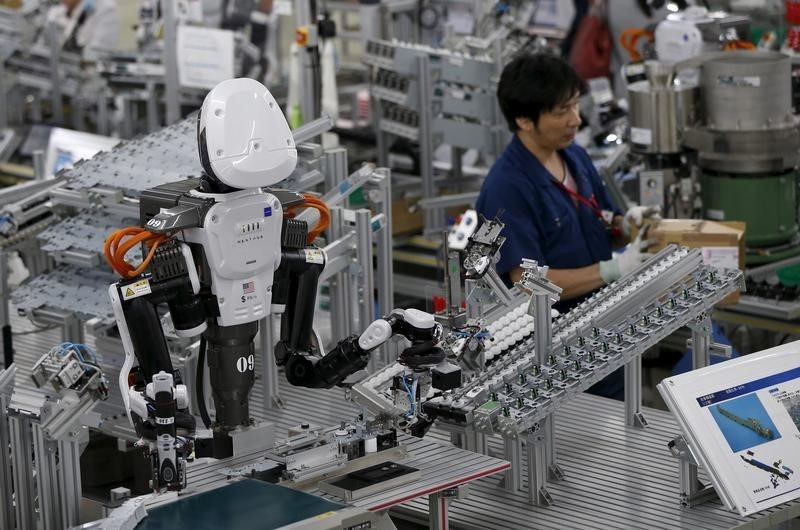By Daniel Leussink
TOKYO (Reuters) - Japan's core machinery orders unexpectedly rose in January, in a positive sign for business investment though worries remain about the economic outlook in light of the widening fallout from the coronavirus outbreak.
Core machinery orders, a highly volatile data series regarded as an indicator of capital spending in the coming six to nine months, rose 2.9% in January from the previous month, Cabinet Office data showed on Monday.
The uptick followed a large revised 11.9% tumble in December and was better than a 1.6% decline predicted by economists in a Reuters poll.
The outlook for the world's third-largest economy has darkened over the past month or so as the rapid spread of the coronavirus around the world has led to huge disruptions in supply chains and businesses, especially in China.
Many analysts expect the global economy will slip into recession, and financial markets have been thrown into turmoil in the past few weeks as investors fear the worst.
Prime Minister Shinzo Abe said on Saturday Japan will consider various options, including a proposal to temporarily cut the country's sales tax rate, to support an economy suffering "quite a big blow" from the virus outbreak.
"The slight rise in machinery orders in January suggests that business investment was recovering – albeit slowly – before the coronavirus began to dent economic activity from all angles," said Tom Learmouth, Japan economist at Capital Economics.
"But given that orders in January predate the global panic around the spread of the coronavirus, we are focusing our attention on more timely indicators. Those point to a broad-based collapse in economic activity," he said.
The Bank of Japan on Monday said it would hold an emergency policy meeting from 12 p.m. (0300 GMT) to discuss monetary policy in light of recent economic and financial developments which will replace the scheduled rate review on March 18-19.
The meeting comes hours after emergency rate cuts in the United States and New Zealand to fight the epidemic's impact.
The BOJ earlier joined the central banks of the United States, the euro zone, Canada, Britain and Switzerland to offer three-month credit in U.S. dollars on a regular basis and at a rate cheaper than usual.
From a year earlier, the core machinery orders were down 0.3% in January, compared to a 0.5% decline seen by economists in a Reuters poll and after a 3.5% fall in December.
